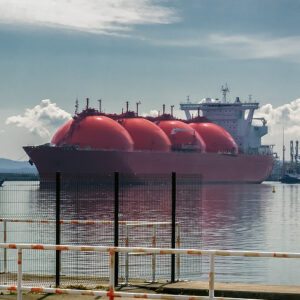When President Joe Biden announced his “temporary pause” on liquid natural gas (LNG) exports in January, he said that it “sees the climate crisis for what it is: the existential threat of our time.”
A federal judge put a stop to the ban six months later.
“[The] Defendants’ action were outside the scope of their authority and rooted in politics and Defendants’ climate change policies,” wrote U.S. District Judge James D. Cain Jr. last week as he issued a preliminary injunction.
Cain said the 15 state attorneys general who sued the administration were justified in their actions because the country’s LNG market is expected to boost gross domestic product by $46 billion by 2030. He noted that the Department of Energy last year rejected a request to end LNG exports.
“This ruling reinforces what we’ve long known: The moratorium, even if temporary, is foolish, dangerous, and harmful to the U.S. economy and our allies overseas,” said Pennsylvania Energy Infrastructure Alliance spokesman Kurt Knaus.
Despite Pennsylvania’s status as America’s second-highest natural gas producer, it was not involved in the suit.
The LNG export pause still caused waves within Pennsylvania politics. Democratic Gov. Josh Shapiro said he hoped it would be short. Democratic U.S. Sens. Bob Casey Jr. and John Fetterman sent a letter to the Biden administration expressing their opposition.
Marcellus Shale Coalition President Dave Callahan told DVJournal it is time for the White House to listen to the courts and energy-supporting lawmakers to end the policy. “We call on the Department of Energy to begin processing all pending permit applications immediately.”
The American Petroleum Institute-Pennsylvania argued the pause never made much sense because it ceded America’s energy advantage to foreign nations and threatened thousands of jobs.
It’s safe to say the natural gas industry powers the Keystone State’s economy.
The only state that produces more natural gas is Texas, according to U.S. Energy Information Administration (EIA) statistics. A 2023 study revealed the industry contributed $41 billion to the state economy, along with 123,000 jobs. It’s also contributed $2.7 billion to Pennsylvania communities through the impact fee.
Callahan said it proves LNG protects global energy security and environmental progress while helping Pennsylvania’s economy.
Nationally, EIA statistics show American companies exported more LNG than any other country last year. And 66 percent of those shipments went to gas-hungry European nations like France, the Netherlands, Germany, and the United Kingdom.
That’s changed since Biden’s LNG export pause was announced.
Gas and oil analytics company ICIS reported that Russia took over as Europe’s biggest supplier of natural gas in May. They initially said that so-called “one-off” factors caused Russian gas imports to eclipse U.S. imports by one percent.
Yet, the EU remained reliant on Russian LNG versus American LNG last month, according to ICIS. While the volume difference was .24 billion cubic meters, the numbers troubled energy analysts.
“If we put a pause in the permitting, that tells [the EU and Asia] this natural gas from America may not be available in the future,” Trisha Curtis, CEO of energy consultant Petronerds, told DVJournal.
American LNG will continue to flow to the EU in the short term. But few contracts go beyond 2030 despite the EU’s top energy official saying last year that there “will be a need for American energy.” Some of that has been credited to the EU’s ambitious climate goals.
Pennsylvania energy advocates have argued the state needs more policies to attract and retain businesses, specifically on permitting reforms.
They’ve also criticized Shapiro and Democrats for proposing a Pennsylvania-centric carbon cap-and-trade initiative. That legislation is dead, according to legislative sources.
Why did Biden hit the pause button on LNG exports? November politics.
The White House met with environmentalists in the months leading up to the executive order. One influencer warned voters would “reward or punish” the president for the export ban.
Curtis scoffed at the idea that Biden could win the election by catering to 20-something-year-old environmentalists. She said the “environmental stuff means nothing” because carbon emissions dropped 36 percent from 2005 through 2021 in the U.S. That drop was credited to the switch from coal to natural gas.
When asked why the administration enacted the pause despite science showing natural gas was good for the environment, Curtis said it was because policymakers don’t understand how energy works.
“They’re putting greenwashing ahead of humankind, truthfully.”
Please follow DVJournal on social media: Twitter@DVJournal or Facebook.com/DelawareValleyJournal

